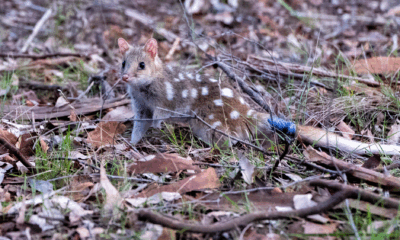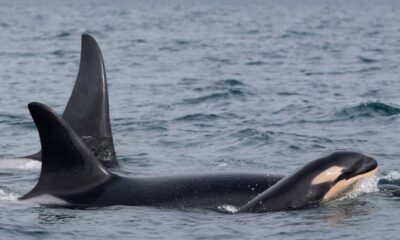Mashudu Mashau shares that it typically takes around two minutes to capture a penguin, a task he performs weekly to investigate reports of injured or sickly seabirds.
“We take our time… we approach slowly, sometimes even crawling, to avoid appearing threatening. When we get close, we target the head, grab the penguin, and secure it,” explained the 41-year-old ranger to AFP.
At times, when penguins venture from South Africa’s shores onto nearby streets and seek shelter under cars, the process becomes more challenging.
“We had one today. They’re tricky to catch as they move from one side to the other under the car, but we managed to get it,” Mashau shared. He has devoted the past eight years to safeguarding the species.
Once captured and carefully placed in a cardboard box, the small feathered creatures are transported to a specialized hospital for treatment.
However, conservationists and veterinarians express concerns that their efforts may not be enough to halt the decline of the African Penguin, recently classified as critically endangered by the International Union for Conservation of Nature (IUCN).
“Regardless of our efforts, if there isn’t a healthy environment for them, our work will be futile,” stated veterinarian David Roberts of the Southern African Foundation for the Conservation of Coastal Birds (SANCCOB) hospital.
With fewer than 10,000 breeding pairs remaining worldwide, primarily in South Africa, a significant drop from 42,500 in 1991, the BirdLife NGO warns that they could face extinction in the wild by 2035.
‘Starving’ Penguins
The declining numbers are attributed to various factors, including food scarcity, climate change, disturbances, predators, disease, oil spills, and more.
However, marine biologist Allison Kock of the South African National Parks emphasizes that the most significant threat is nutrition.
“Many penguins are starving and not receiving sufficient food to breed successfully,” Kock told AFP. Insufficient food intake, particularly sardines or anchovies, leads penguins to abandon breeding.
Authorities have enforced a commercial fishing ban around six penguin colonies for a decade starting in January.
Despite this, SANCCOB and BirdLife argue that the no-fishing zones are inadequate to make a substantial impact and have filed a lawsuit against the environment minister on the matter.
“Ideally, we would prefer a more abundant fish population in the ocean, but that is beyond our control. However, we can advocate for the reduction of direct competition for the limited fish resources between industrial fisheries and penguins,” explained SANCCOB research manager Katta Ludynia.
The South African Pelagic Fishing Industry Association contends that the fishing industry’s impact on penguin food sources is minimal.
“There are clearly other significant factors negatively impacting the African Penguin population,” stated chairperson Mike Copeland.
The environment ministry has proposed a discussion group to address the complex issues, with a court hearing scheduled for March 2025. The minister, who assumed office in July, has proposed an out-of-court settlement.
In addition to the no-fishing zones, several other initiatives are in progress to preserve the African Penguin, such as artificial nests and new colonies.
Tourist Traffic
Being classified as “critically endangered” presents a double-edged sword.
While conservationists seek attention and funding, it also attracts more tourists to penguin habitats, leading to potential disturbances.
“Penguins are highly vulnerable… and the increasing level of disturbance, including people with selfie sticks, poses a growing challenge,” noted Arne Purves, coastal conservation and compliance officer for Cape Town.
“Especially now that penguins are even more in the spotlight.”
Tourism plays a crucial role in South Africa, with thousands of visitors flocking to penguin colonies annually, generating substantial profits.
For individuals like Mashau, who are at the forefront of saving these flightless birds, the recognition is long overdue.
“Over the past five years, it was the rhinos… we hope to receive the same level of respect and assistance now,” he remarked.
Preserving the environment is also crucial. “This species serves as an indicator of a healthy ecosystem that humans are also part of… and the healthier the penguins, the greater the benefits for humans,” he added.
Published – November 19, 2024 10:46 am IST







































